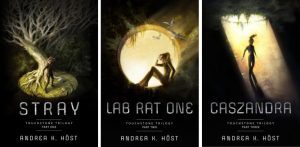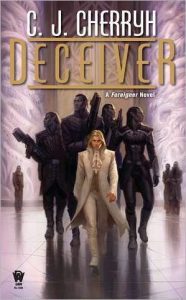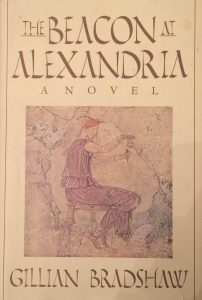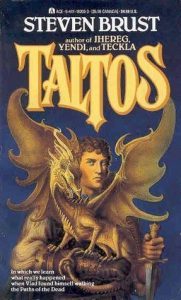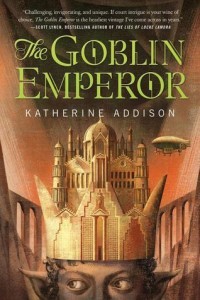Rachel Neumeier's Blog, page 239
March 1, 2018
The sudden urge to buy a book
For the last several days I’ve had the sudden and general urge to buy a new book. I’ve stopped off at a few bookstores around the city, and while I’ve looked at hundreds and hundreds of books in that time, I have not found the one book that will satisfy my urge. It’s not as if I don’t have anything to read; there’s a tower of perfectly good unread books next to my bed, not to mention the shelves of books in the living room I’ve been meaning to reread. I find myself, maddeningly, hungry for the next one, as yet unknown. I no longer try to analyze this hunger; I capitulated long ago to the book lust that’s afflicted me most of my life. I know enough about the course of the disease to know I’ll discover something soon.
Lewis Buzbee, The Yellow-Lighted Bookshop: A Memoir, a History
I saw this at The Passive Voice blog, because The Passive Guy drops random quotes onto his site from time to time.
It made me laugh because of course it’s so true. Though for quite some time I’ve lived in an area where the nearest bookstore is 80 miles away, so just dropping by is out of the question. Nevertheless, it’s so true that sometimes I stand in front of my (heavily loaded) TBR shelves and just don’t want to read any of those books.
This is my version of a reading slump — a term I’ve heard from book bloggers when nothing much appeals to them. Apparently this can go on for quite a while for some people, which certainly sounds like not much fun.
For me, I find there are three good solutions to a reading slump, aka a desire to buy a new book except I don’t know what I want to read:
1) Re-read something. Or a whole series. Hence the “top-ten to re-read forever” types of lists; those are pretty likely to be just what I reach for during a reading slump.
2) Read something new to me by Ilona Andrews or Patricia Briggs. Particularly the former. Ilona Andrews’ books are always so catchy.
3) Read some novel, most likely a YA novel, that everyone was talking about a couple years ago but I never got to. YA books are generally fast-paced. If I’m in a reading slump and not really in the mood to read anything, a YA novel is more likely to grab my attention quickly and pull me into the story even if I thought the book wasn’t quite what I was in the mood to read.
What strategies do you all use to kick yourselves out of a reading slump? Or do you never suffer from the experience of looking at hundreds and hundreds of books without being able to find the one book that will satisfy your urge?
Please Feel Free to Share:









Ten books I could re-read forever
At By Singing Light, Maureen has this post: Ten books I could re-read forever.
It’s a great topic! Also, I could easily steal three or four of Maureen’s books for my own similar list:
1. Gaudy Night by Dorothy Sayers
2. Queen of Atollia by MWT
3. The Fall of Ile-Rien trilogy by Martha Wells
Big enthusiastic YES ME TOO to all of those.
I loved several of her other picks but I’m not sure I would re-read them very often. In ten or twenty years, sure, probably. Maybe. Some stories are so powerful I will probably walk in a wide circle around them for decades before I re-read them. (Elizabeth Wein, I’m looking at you.) Others I don’t expect I will ever re-read. (Jonathan Strange and Mr Norrill. Once was enough.)
I certainly could fill out my own top ten list, though! No problem with that — except preventing the list from turning into a top twenty list. Luckily it is easy to cheat by declaring that “other books by this author too” is a thing.
In the order in which titles (or series) occur to me:
4. The Touchstone trilogy by AKH
5. The Foreigner series by CJC
7. A Beacon at Alexandria (and others by Gillian Bradshaw)
8. The Book of Atrix Wolfe (and others by Patricia McKillip)
9. The Taltos series by Brust (except Teckla)
10. The Goblin Emperor. I don’t know why it took me so long to think of it, but it’s definitely a book I will re-read forever.
Please Feel Free to Share:









February 28, 2018
It’s okay to hiss —
Your character can indeed hiss, as well as whisper, murmur, mutter, and so on — according to Chuck Wendig at Terrible Minds.
Here I have been persuaded by various copy editors and demagogues that a character can’t hiss — unless the words in question include sibilants. But Chuck has convinced me otherwise. Like so:
Let’s assume that Merriam-Webster is a fair authority, yeah?
Go to their definition of hiss, please.
You will note that their definitions include:
1: to express disapproval of by hissing
2: to utter or whisper angrily or threateningly and with a hiss
Just in case we’re not clear, let’s look at their sample sentences, one of which is:
‘“Leave me alone!” he hissed.’
See? It’s okay. Some people get caught up in the literal definition where it requires sibilance — but even there, you’re in tricky territory, because writing fiction is not like writing a fucking software manual. Not everything has to be literal. If I say someone growled something, they don’t first have to be a wolf or a fucking Yeti to do that. When I say, “We dug up new information,” it doesn’t require a literal shovel, nor is a backhoe required when I say, “She dug the idea.” We all understand she liked the idea, not that she had to excavate it physically. And when we say that someone hissed something, we do not explicitly require them to have snakily-sibilantly-hissed it at them. Because language is a fucking playground and we can have some fun with it. We can attempt to evoke with metaphorical or phrasal verbs. Language is fluid. It shifts and changes. So must our expectations of it.
I never thought of hissed as in the same category as growled; ie, fair game no matter what words are coming out of the character’s mouth. But I think I will consider the word equally okay from now on.
What do you all think, would it bother you to have a character hiss without sibilants?
Please Feel Free to Share:









Five Lost Cities
So, recently I had a chance to place a new board game called Ex Libris, in which players attempt to build a great library. All the cards have book titles on them; of these, one that stood out was a fat volume entitled Almost Forgotten Empires.
Almost sounds like a real book title, doesn’t it? After all, there’s no shortage of almost forgotten empires, right? Like the Sasanian Empire in what is now Iran, for example, or the kingdom of Aksum, which is featured in Elizabeth Wein’s wonderful Sunbird and related novels.
Well, here’s a recent post from The Guardian that’s a work along the same theme: Five lost cities of the world.
Here’s the one I found most intriguing:
Gedi, Kenya
Located on the Indian Ocean coast, 65 miles north of Mombasa among verdant forests, this settlement is thought to have been founded in the 12th century. Gedi had advanced features such as running water and flushing toilets. Archaeologists have found Ming Chinese vases and Venetian glass on the site, suggesting it was an important trading centre. Its abandonment five centuries later remains a mystery.
Interesting! I visited Mombasa once. No one mentioned Gedi. What a fascinating place to visit, and how interesting to imagine what the city and its world might have been like.
Please Feel Free to Share:









February 27, 2018
Star Trek: Discovery
Anybody watching “Star Trek: Discovery” so far?
Here’s a long post about Discovery, by Chris Barkley, at File 770: “Before we dive in here, I must say in full disclosure that I have purposefully avoided a great many critiques of the first season of Star Trek: Discovery to avoid copycatting anyone else’s opinion or views. I would like to think that as a fan of a certain age (sixty -one, for the record), and having watched every incarnation of the series since it started, I have a uniquely comprehensive view of the franchise.”
I haven’t watched it … I don’t have the ability to stream video, even in winter, unless the weather is especially cooperative. Plus I never feel like I have time. But Chris Barkley does make the show sound worth trying. I doubt his view is uniquely comprehensive, but it’s more comprehensive than mine. I grew up watching the Original series, then watched most of the Next Generation and part of Deep Space Nine and a little of Voyager.
Here’s how Barkley starts his description of Discovery:
Star Trek: Discovery however, dazzled me right out of the gate with its pilot episodes, “The Vulcan Hello” and “The Battle of Binary Stars”, as I recounted in my impressions from another previous column. At the end of these episodes that Captain Philippa Georgiou (Michelle Yeoh) of the Shenzhou is dead after a surprise raid on an enemy ship went sideways, the Federation is in an all out war with the Klingon Empire and that First Officer Michael Burnham (Sonequa Martin-Green) was convicted of mutiny and imprisoned for life.
And then things got decidedly more complicated.
Six months into her sentence, Burnham’s transfer to another prison is delayed by an emergency “rescue” engineered by Captain Gabriel Lorca (Jason Isaacs) of the USS Discovery. Lorca deliberately sought to have her diverted to serve on his ship under the title “Specialist” in order to help the Federation’s war efforts. (Or so it seems.) Burnham, who is still feeling quite a considerable amount of guilt about Georgiou’s death and her part in starting the war, somewhat reluctantly accepts the assignment.
This doesn’t sound quite like anything I would have expected. It does sound complicated and interesting. Have any of you been following this show, and what do you think of it? Are there any plans so far to put it out on a DVD set?
Please Feel Free to Share:









Worldbuilding with birds
Just remembered I wanted to draw your attention to this Twitter thread by Lindsay Beth:
Hey so since you all seemed to enjoy my first NATURE AS WORLDBUILDING thread, I’m gonna do another BUT I’M GONNA FOCUS ON BIRDS
BECAUSE I LOVE BIRDS
So here are some things birds do that’d make good worldbuilding inspiration!!
Click through if you have a moment! I kept a sharp eye out for the hoatzin on this thread because that is possibly the coolest living bird species in the entire world, and I’m glad to say Lindsay Beth put ’em on there, which made me happy.
Also, after reading this thread, I have a deep desire to put terror birds into my next book if at all possible.
Enjoy the thread!
Please Feel Free to Share:









February 26, 2018
In praise of negative reviews
Here’s a recent post by Rafia Zakaria: In praise of negative reviews
The general tone and tenor of the contemporary book review is an advertisement-style frippery. And, if a rave isn’t in order, the reviewer will give a stylized summary of sorts, bookended with non-conclusions as to the book’s content. Absent in either is any critical engagement, let alone any excavation of the book’s umbilical connection to the world in which it is born. Only the longest-serving critics, if they are lucky enough to be ensconced in the handful of newspapers that still have them, paw at the possibility of a negative review. And even they, embarking on that journey of a polemical book review, temper their taunts and defang their dissection. In essence they bow to the premise that every book is a gem, and every reviewer a professional gift-wrapper who appears during the holidays.
I don’t follow any newspaper-based professional critics, so I don’t know whether this is true. Every book a gem, every review an advertisement, really?
Does it matter, when participants in Goodreads and readers at Amazon leave plenty of negative reviews? Maybe it does. A thoughtful, critical review — I’m thinking here of the job Mari Ness does when reviewing Disney movies at tor.com, as for example here — is quite a lot more interesting and perhaps far more worthwhile than any one-sentence comment at Goodreads. But do that many people play that much attention to professional critics these days? Maybe libraries and so on when considering what to purchase, but ordinary people?
Not that I don’t prefer glowing reviews from the critics when I happen to get ’em.
Anyway, Zakaria’s post is possibly a tiny bit turgid…
Reviewers are neither arbiters of taste nor are they ushers doing the job of wheedling readers to get under a particular set of covers. Consideration of a book is an engagement with its context, and even more crucially an enunciation of the alchemy between its content and the inevitably subjective experience of reading it. In this sense, the unique subjectivity of every reader will inevitably interact differently with a book; this prismatic aspect of what individual readers “get” from literature is part of the intimacy of reading, its inherently individual aspect.
… I’m having trouble getting through that unique subjectivity sentence, for example. Still, the point Zakaria is making is perhaps correct, depending on whether you consider professional critics very important or not.
In this context, I had to laugh when I read Emily St. John Mandel’s post on negative reviews:
Publishers Weekly doesn’t like my work very much. Before you roll your eyes and/or get all excited at the prospect of a classic “I can’t believe I got a bad review!” hypersensitive-author meltdown, let me hasten to add that I have absolutely no interest in refuting anything they’ve ever written about my books. I mean, I believe in my work, and “reads like a barely-dressed-up B movie screenplay” does strike me as being a bit on the harsh side, but I’m hardly an objective party here. (Also, I kind of like B-movie screenplays.) There’s no such thing as a book that every reader will like.
Oh, yes, Publisher’s Weekly! There’s a professional critic’s venue that is not always on my personal top-ten list. It depends. Obviously I was pretty happy with their review of Winter, rather less so with their review of Mountain. I said something snarky to a writer-friend about that latter review, and she pointed me to a Pub Weekly review of one of hers that made the Mountain review look like a paean of praise.
St. John Mandel — if you are trying to remember, she is the one who wrote Station Eleven. I loved that one and in fact Pub Weekly also rather approved of it, so her post about negative reviews was written before that and she may feel differently now. Anyway, she goes on:
The repeated experience of being swiped at by PW’s nameless ghosts has made me think, though, about the phenomenon of lousy reviews in general: the perils of responding to them, and the pressures they impose on our work, and how difficult they are to ignore, and whether or not they actually matter.
And then a long meditation on that theme, well worth reading.
I spotted both posts about negative reviews via The Passive Voice blog, btw.
Please Feel Free to Share:









February 23, 2018
A black cake for all your Fiftieth Birthday Party needs
Frankly it doesn’t seem to have taken 50 years to get to this point, but here we are, my twin brother and I, fifty years old yesterday.
Here is the cake I made to celebrate our semi-centennial:
Black Midnight Cake
I got this recipe here. I made mine blacker by using black cocoa powder rather than Hershey’s special dark cocoa powder. Believe me, the cocoa powder I used was very black.
In case you’re curious, it turns out that black cocoa powder is made by very heavily “dutching” regular cocoa powder. Dutch cocoa powder is much less acid than natural cocoa powder, which means it doesn’t react with baking soda, so any recipe using it must use baking powder, or both baking soda and baking powder, depending. As you can see, the recipe below uses both. The buttermilk should react with the baking soda, then the baking powder adds more lift. Dutch cocoa powder is milder in flavor but produces moister baked goods than natural,and in general I would suggest using both to intensify the chocolate flavor of the cake, but I wanted this cake super dark so I just used black cocoa powder.
If you read through the post where I got this recipe, you’ll see some of the people who try it say the cake turned out dry. I would bet they used natural rather than Dutch cocoa powder. When I made it with black cocoa powder, it was quite moist. The coffee and cayenne are not perceptible but serve to deepen the chocolate flavor. Anyway, here you go, the recipe:
2/3 cup dark cocoa powder
1 cup hot strong brewed coffee
1 pinch cayenne
1/2 cup vegetable oil
2 cups sugar
2 large eggs
1 cup buttermilk
1 teaspoon vanilla
1 3/4 cups all purpose flour
1 teaspoon salt
2 teaspoon baking soda
1 teaspoon baking powder
Combine the cocoa powder, coffee, cayenne. Beat the oil with the sugar. Add the eggs and beat for 2 minutes to help aerate the batter. Add the buttermilk, vanilla, and cocoa mixture. Beat to combine. Clean up the very, very black spatters that might have appeared on your counter top. Combine the dry ingredients and beat in gently. Pour into two 9-inch cake pans lined with circles of parchment paper and bake at 350 degrees until done (cake springs back when touched, a toothpick in the center comes out almost clean, about 35 minutes but start testing after 30 and it may go quite a bit longer depending on your oven). Cool in pans ten minutes, turn out on racks, cool completely and fill or frost as desired.
I made a black icing by combining:
8 oz cream cheese
1 C semisweet chocolate ships
1 1/2 C. powdered sugar
1/2 tsp or so black coloring gel
This didn’t make enough icing, so I also made the following filling:
4 oz cream cheese
3 oz white chocolate
2 Tbsp butter
2 Tbsp sour cream
I filled the cake with the white filling and frosted the top and sides with the black frosting. As you can tell, I prefer less sweet frostings that are heavy on the cream cheese. Naturally you could use whatever kind of frosting you like. This frosting is black and shiny, so a dust of gold powder across the top finished it off.
It was really quite tasty. I recommend it to you all, if for some reason you would like to make a black black black cake.
Please Feel Free to Share:









February 20, 2018
I … am thinking … of going with KDP select
KDP select means
a) my books would be available solely on Amazon.
b) my books could be borrowed and royalties paid on a pages-read basis.
(a) is a disadvantage, but I switched Black Dog to KDP select in order to make it free for five days back in December. And you know what? (b) is very decidedly making up for (a). Sales through all other channels have never been at all high. Pages-read in January and February was a lot more noticeable in terms of income.
I know I have one reader who comments here who buys from Kobo. No doubt there are a scattering of others. But … those pages-read royalties are definitely something to think about.
Comment, please. How many of you would even notice if I switched everything to Amazon exclusively?
Please Feel Free to Share:









Buying and Selling Spouses
There’s an attention-grabber of a title, eh?
It’s a continuation of Marie Brennan’s essays about marriage, over at Book View Cafe: Buying and Selling Spouses
One of the ways to view a dowry’s function is that it “purchases” a husband for the daughter, and as with anything else, the more money you have, the better a product you can buy….The inverse of dowry is bride price or bridewealth: the groom or his family transferring property or wealth to the bride’s family. Sometimes this is again a form of financial security for the bride, but in other situations it’s very much not, depending on whether her family is expected to return the bride price in the event of the marriage failing. It also theoretically demonstrates the husband’s ability to support a wife….Then there’s dower — which, despite the similarity of sound, is not the same thing as dowry. It’s more akin to bride price, in that it’s a payment made by the groom, but in this case it goes directly to the bride herself, rather than to her family.
Much more at the link.
Of course we get dowries and other financial arrangements all over the place in historical novels, from, oh, Catherine Called Birdy to the very specific financial and property arrangements underlying Niccolo’s marriage to his employer in Niccolo Rising.
How often do we see that kind of thing in fantasy (pretty often, I’m sure — oh, sure, remember how Tremaine married Ilias in the Ile-Rien trilogy) or science fiction (seems less likely there).
Or I thought probably the trope was unusual in SF, until a moment of googling showed me that the “alien’s mail-order bride” is actually a pretty popular trope. Who knew?
This one — called, yes, The Alien’s Mail-Order Bride — actually sounds kind of charming:
Though still carrying the scars of his past as an intergalactic soldier, Emvor doesn’t mind the quiet of his chosen life as a farmer. He doesn’t even mind that most nights are lonely on remote Cassa, but he does need help around his farm. A mail-order bride from his homeworld seems like the perfect solution. She’ll be a tall, sturdy female to help with the chores and bear his children.
Unfortunately, the person that arrives is Nicola. She’s small, delicate … and human. She also knows nothing about farming, and she’s lied and deceived her way across the galaxy to get to Cassa so she can hide from those that would capture her. She’s a problem, and also the most enticing thing he’s ever seen.
Now Emvor has to decide … can he keep the woman who’s nothing like what he asked for but is everything he needs?
I gather from the first comment at Goodreads that this is the first book in a specific mail-order bride series shared among four different authors. Well, I wouldn’t have guessed this would be a thing, but I guess it’s a thing.
Obviously there are all kinds of unpleasant directions to take this idea of handling the financial aspects of marriage — that mail-order bride thing is only charming in the right kind of fiction — but one could certainly check out historical patterns of dowries and brideprice and so on, and then come up with something a little less historical and possibly a little more interesting. Like . . . I don’t know . . .
1) You can’t buy a spouse, but you can buy property and the spouse comes with the property. Like the way serfs were bound to the land, only different.
2) You can’t buy a spouse — buying people, no way! — but you and your wife have to bank a certain amount of money before you are allowed to have children. I assume potential spouses with that kind of wealth would be more attractive prospects.
3) You can’t buy a spouse outright, but you can buy an option. Remember how Kareen Koudelka wanted an option on Mark Vorkosigan in A Civil Campaign? Like that.
4) You can totally buy a spouse, but your spouse can divorce you by throwing the money back in your face and walking out.
5) Aren’t there customs where the bridegroom “kidnaps” the bride — one hopes just symbolically, but probably based on reality some of the time. That would be one way around too-rigid dowry customs.
Please Feel Free to Share:










